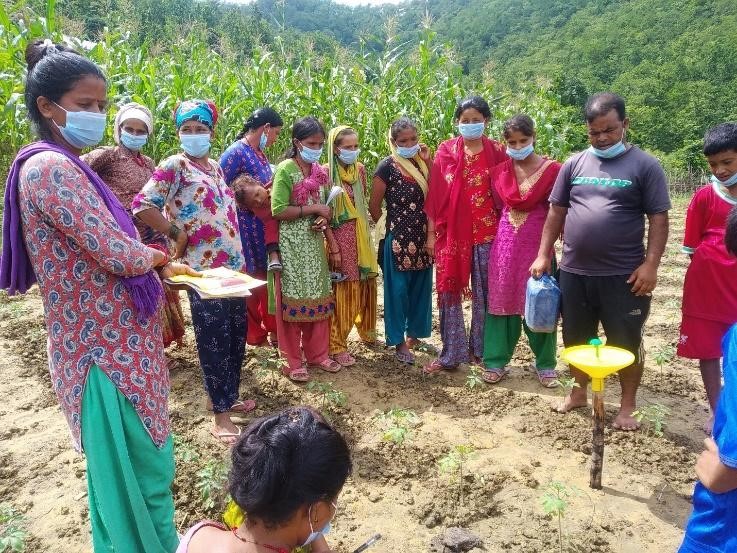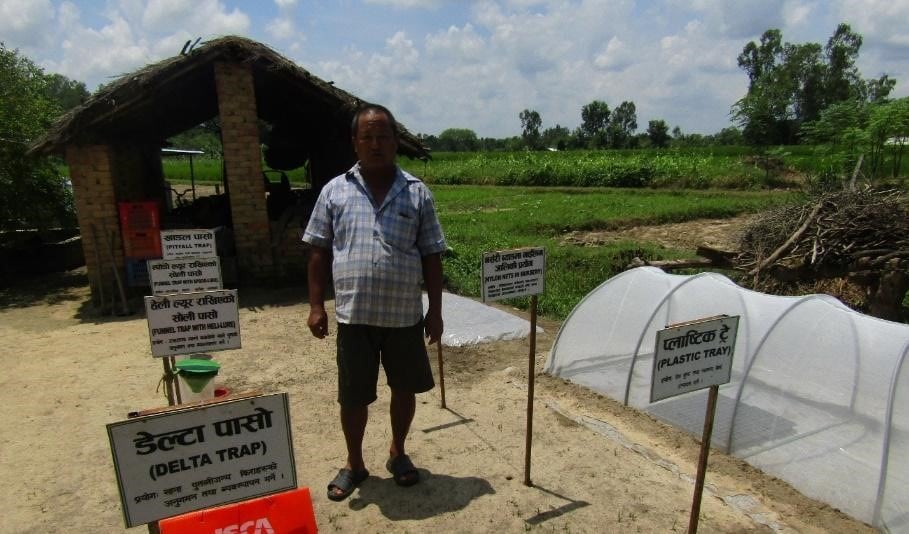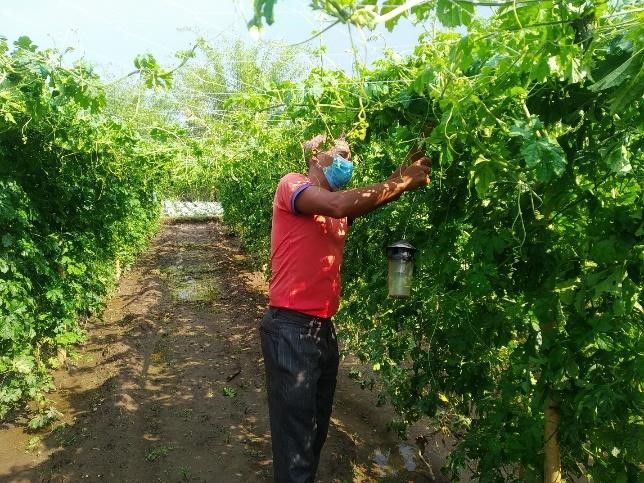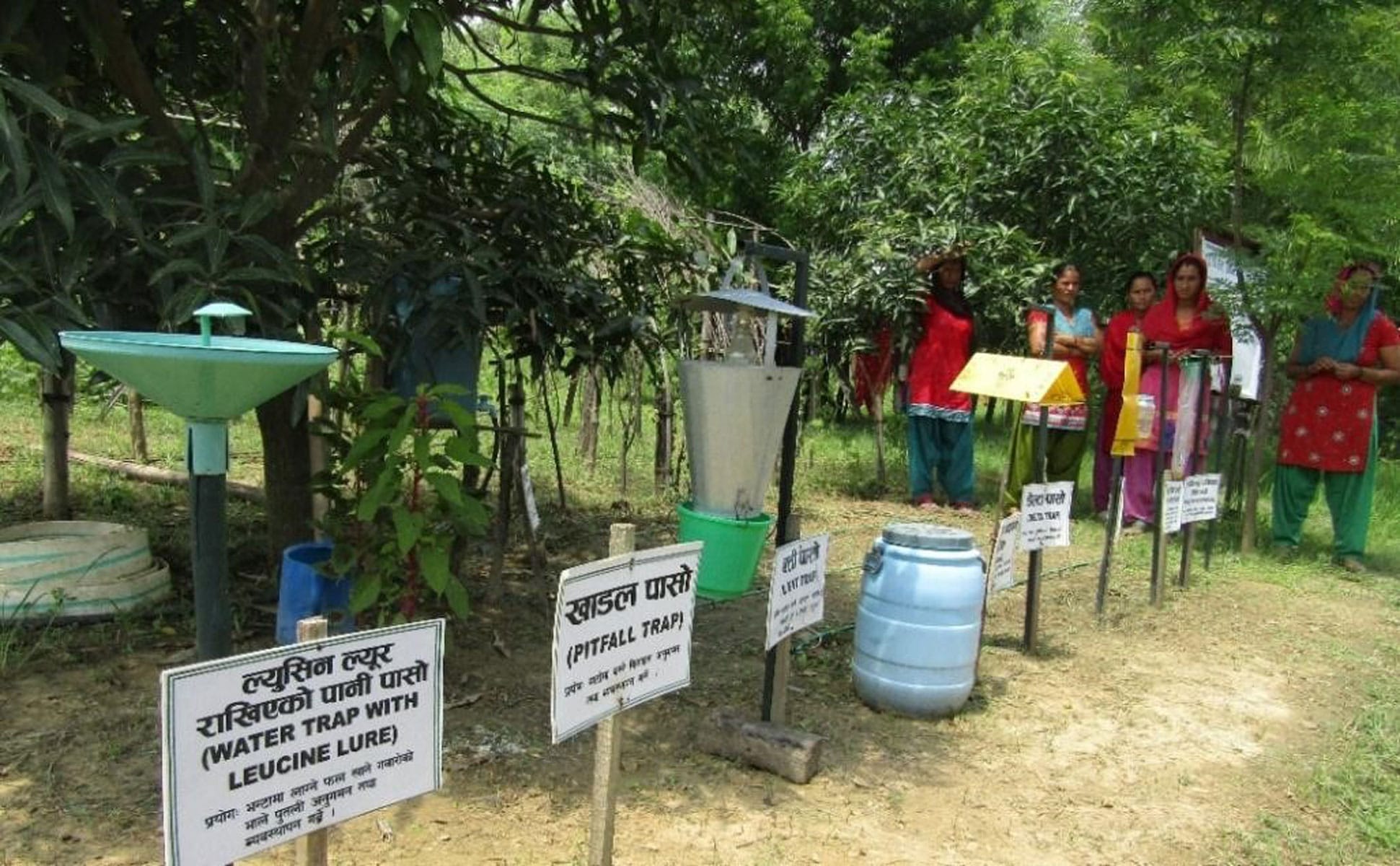By Sadiksha Basnet and the Center for Environmental and Agricultural Policy Research, Extension and Development
Agriculture accounts for 65% of Nepal’s workforce and 30% of its land area, yet it only contributes 30-35% of the nation’s gross domestic product (GDP). Why? It’s largely due to poor infrastructure and inefficient agricultural practices, including poor integrated pest management, or IPM.
Nepal only uses about 211 tons of pesticides each year, much less than other Asian countries. However, pesticide use is trending higher in the country due to droughts, invasive pests, irregular rainfall patterns, and drier winters–all related to climate change. Nepal is deemed one of the most vulnerable countries to climate change. Harsh topography and lack of management capacity also contribute to low yields. However, appropriate and safe IPM practices can help Nepal adapt to climate change.
Nepal’s Center for Environmental and Agricultural Policy Research, Extension and Development, or CEAPRED, is helping build better agricultural resilience through its IPM project. The project involves actively developing, adapting, and diffusing better IPM technologies and practices, incorporating the concept of “adaptation and resilience-building” in agriculture by equipping farmers with simple and affordable technologies and know-how critical for long-term resilience to climate change and associated shocks.
Through our IPM initiative, we conduct research on various pests (including insects, pathogens, and weeds) and suitable, ecologically sound, and participatory IPM practices needed for pest control, with a special emphasis on vegetables and fruits such as tomatoes, cucurbits (squash, pumpkin, cucumber, etc.), apples, and major crops such as maize and rice.

We select project sites based on their history of extensive pesticide use, declining agricultural production, or lack of IPM knowledge. We train groups of farmers on pest monitoring and control, through demonstrations, comparative studies, and training of lead farmers. Lead farmers further disseminate the knowledge to their peers and help make the projects sustainable, though we also provide on-going support.

We also build local capacity by training community-based “plant doctors” on pest identification and monitoring. They currently focus on pest infestations brought about by Tura absolute, fall armyworm, Spodoptera, and Helicoverpa, among many other species.
Approximately 538,817 households have benefited from this project to date, and our organization will continue to assist them with support from donor organizations.
Success story
Mr. Chandra Bahadur, a 45-year-old farmer living in Bherirang municipality 11 with his wife and two sons, is among CEAPRED’s IPM project success stories.

Chandra’s livelihood depends on his farm, where he can always be seen strolling happily through rows of vegetable plants, mostly tomato, cucumber, bitter gourd, yard bean, cabbage, and cauliflower. Although Chandra has been involved in agriculture for the last 10 years, he was unaware of IPM technologies and had been relying instead on pesticides for pest management.
After participating in a CEAPRED IPM training program we organized in his area, Chandra soon came to realize the harmful effects of pesticides. These days he’s applying various IPM tools and methods to control pests, both insects and diseases, on his farm. Furthermore, the application of IPM technologies has helped him increase his vegetable production. With the resulting extra income, he has since purchased his own vehicle to transport his vegetables to the market and is even involving his young son in his thriving business.
Sadiksha Basnet is a program officer at CEAPRED
Photography credit: IPM project staff in the field. CEAPRED.
— Grow Further




